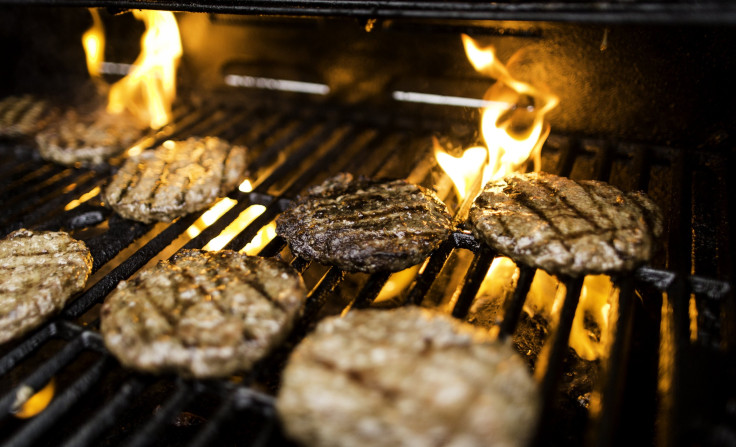Some Meat Cooking Methods Increase Risk Of Kidney Cancer By Messing With People's Genes

Meat eaters have been hit with some pretty bad news lately, as the World Health Organization (WHO) recently labeled meat carcinogenic — giving carnivores a reason to cut back. Adding to the sobering news is new research from scientists at the University of Texas MD Anderson Cancer Center, who studied patients’ meat intake and examined their DNA. Their findings, published in the journal CANCER, reveal meat has the potential to affect people’s cancer risk on a genetic level.
For the study, researchers tracked the dietary patterns from 659 patients recently diagnosed with renal cell carcinoma (RCC), also known as kidney cancer, and then collected their genetic information. These patients’ data were then compared to that of 699 healthy subjects recruited from the same community. Researchers were able to analyze possible genetic mutations using the National Cancer Institute’s database.
Among the study’s participants, those with kidney cancer had a history of consuming more red and white meat when compared to healthy, cancer-free individuals. Cancer risk increased as much as 54 percent when participants consumed certain meat mutagens — harmful compounds created when meat is cooked in certain ways. Moreover, when researchers looked at the specific genes associated with RCC risk, they found individuals with the gene “ITPR2,” were more susceptible to the effects of certain meat mutagens.
"We found elevated RCC risk associated with both meat intake and meat-cooking mutagens, suggesting independent effect of meat-cooking mutagens on RCC risk," said the study’s lead author Xifeng Wu, an epidemiology professor at the University of Texas, in a press release.
The Western diet is rife with higher-than-average meat consumption, which has been linked to an increased cancer risk. WHO’s recent declaration came after an international team of scientists evaluated more than 800 studies linking cancer to processed and unprocessed meat consumption. One of the main drivers of meat’s carcinogenic properties, according to the report, is how the meat is prepared. Curing and smoking often results in the formation of cancer-causing chemicals, as does cooking the meat with high temperature techniques, such as pan-frying, grilling, and barbecuing.
For these reasons, the current study suggests meat eaters should not only watch the quantity of meat they consume, but also how it’s cooked. "Our findings support reducing consumption of meat, especially meat cooked at high temperatures or over an open flame as a public health intervention to reduce RCC risk and burden," Wu said.
According to the American Cancer Society, approximately 61,560 new cases of kidney cancer will be diagnosed by the end of 2015. Of those, an estimated 14,080 will die from the disease. “Renal cell carcinoma occurs more frequently in higher income countries than in less developed parts of the world, so it seems probable that it is caused in part by a Western lifestyle.” Dr. Ian Johnson, a nutrition researcher at the Institute of Food Research who wasn’t involved in the study, told Science Media Center. “Obesity is one risk factor, but some recent studies have also implicated high levels of meat consumption. This new report is consistent with that hypothesis.”
Source: Wu Y, Melkonian S, Daniel CR, Ye Y, Tannir NM, and Karam JA, et al. Cancer. 2015.



























